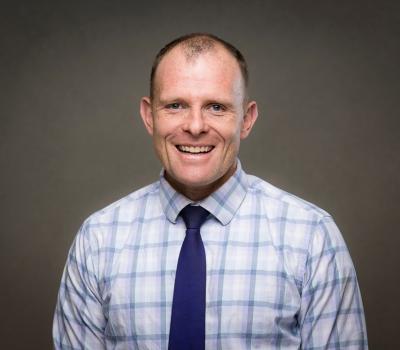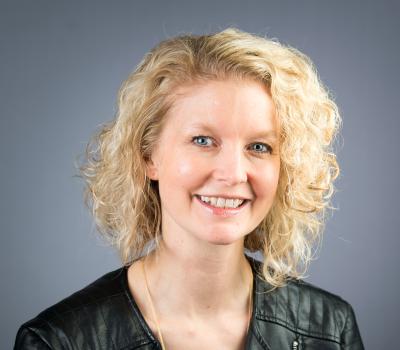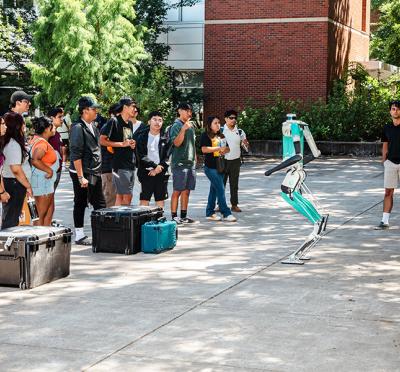Oregon State University College of Engineering students and faculty recognize David Blunck as the associate professor of mechanical engineering at the helm of the Combustion, Ignition, Radiation, and Energy Laboratory and the Propulsion Laboratory, and as associate head of the School of Mechanical, Manufacturing, and Industrial Engineering. Around Albany, however, locals know him and his family for their farm.
“We moved there in the winter of 2017,” Blunck said, “and there was about 10 acres that had historically been just rented out or shared with a farmer. My wife and I wanted an opportunity for our kids to be able to work and earn money.”
That opportunity, manifested as Blunck Family Produce & Willow, has flourished. The Bluncks now have land devoted to a cornucopia of crops, including corn, cucumbers, zucchini, apples, flowers, and, recently, pumpkins.
“We sold pumpkins in the past, but we haven’t had a pumpkin patch where people can come walk through,” he explained. “So, this year, we expanded to an acre of pumpkins.”

Blunck isn’t managing the expansion alone. His four sons, ages 5 to 14, and his wife, Sheri, assist with everything from planting and harvesting to decorating the produce stand. Besides cultivating a strong work ethic, Blunck’s sons get to keep the profits after tithing to their church. Truly, they reap what they sow.
“Every day, they get up and go into the kitchen, and there’s a chore list for the day. Right now, we’re doing a lot of harvesting. I have one son that’s in charge of harvesting the corn and putting it out there, one that’s in charge of tomatoes, et cetera. So, it’s split up,” he said.
With a bounty of over 2,000 pounds of produce this year, the Bluncks have been able to donate surplus crops with the help of a Corvallis community activist who collects extra produce from local farms and distributes it to a coastal Native American tribe and less fortunate citizens of Linn and Benton counties. They also donate to friends and church members, and nonedibles are sent to a College of Forestry employee, who feeds them to his cows.
“My kids’ teachers know about the produce stand. It’s common to be working, and someone drives by and honks. It’s just fun to be known in the community. It’s very rewarding to track your customer service,” Blunck said.
Another reward for Blunck is seeing his sons grow along with their crops. Two are members of their local 4-H branch, and another will join his brothers soon. With increasing agricultural prowess, they’re also generating original ideas to improve their produce operation. One son wanted to save and replant seeds from for pumpkin pie-loving customers, while another insisted on growing watermelon.
“I just see them grow in their ability to talk to people, to connect with people. They’re developing some business skills; they’re developing some farming skills,” Blunck said.
Blunck and his engineering students have also used the property for studying the spread of wildfires to improve containment methods. So far, they’ve examined firebrands from multiple species of trees and shrubs and have conducted over 200 burns. A Canby native whose great grandparents, grandparents, and mother attended Oregon State, Blunck is glad to leverage his land for research, noting the skills overlap with farming. He is also proud to note that his grandfather was recognized as an outstanding alumnus of the College of Agriculture.

“People who have to do a lot with their hands tend to have a get-it-done type attitude. As I write proposals and approach research, that just trickles up. And then, on the flip side, I think research has helped me to become a better problem solver. I’m looking for cause and effect; if I do this, then this happens. I think I do that a lot on the farm,” he said.
His sons may develop this mentality, too. Although it’s uncertain if there are future engineers among them, their produce business will serve them well.
“If they can learn to work hard and do hard things, they’re going to be OK for just about anything in life,” Blunck said.
Clearly, his message has already taken root.





